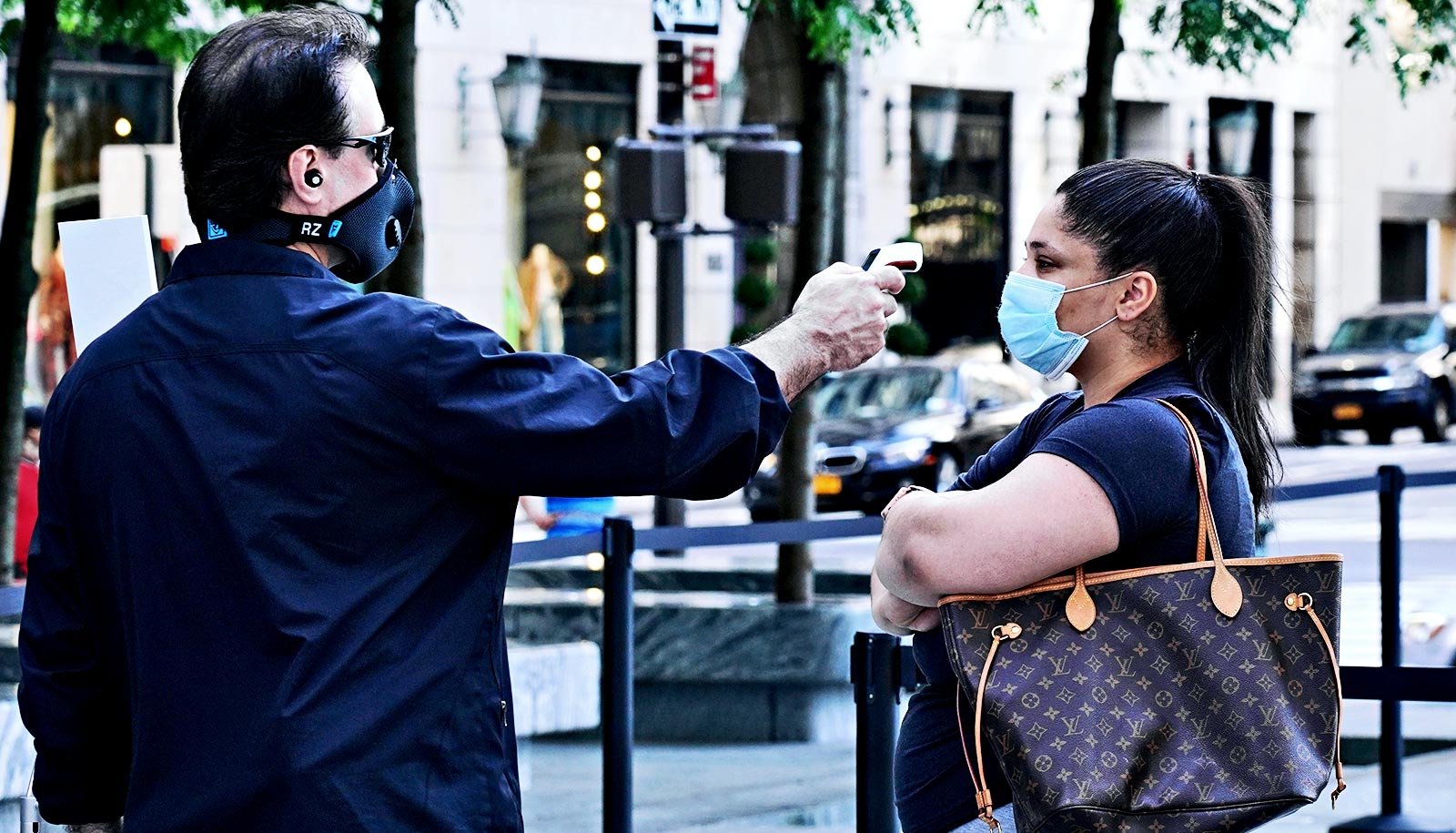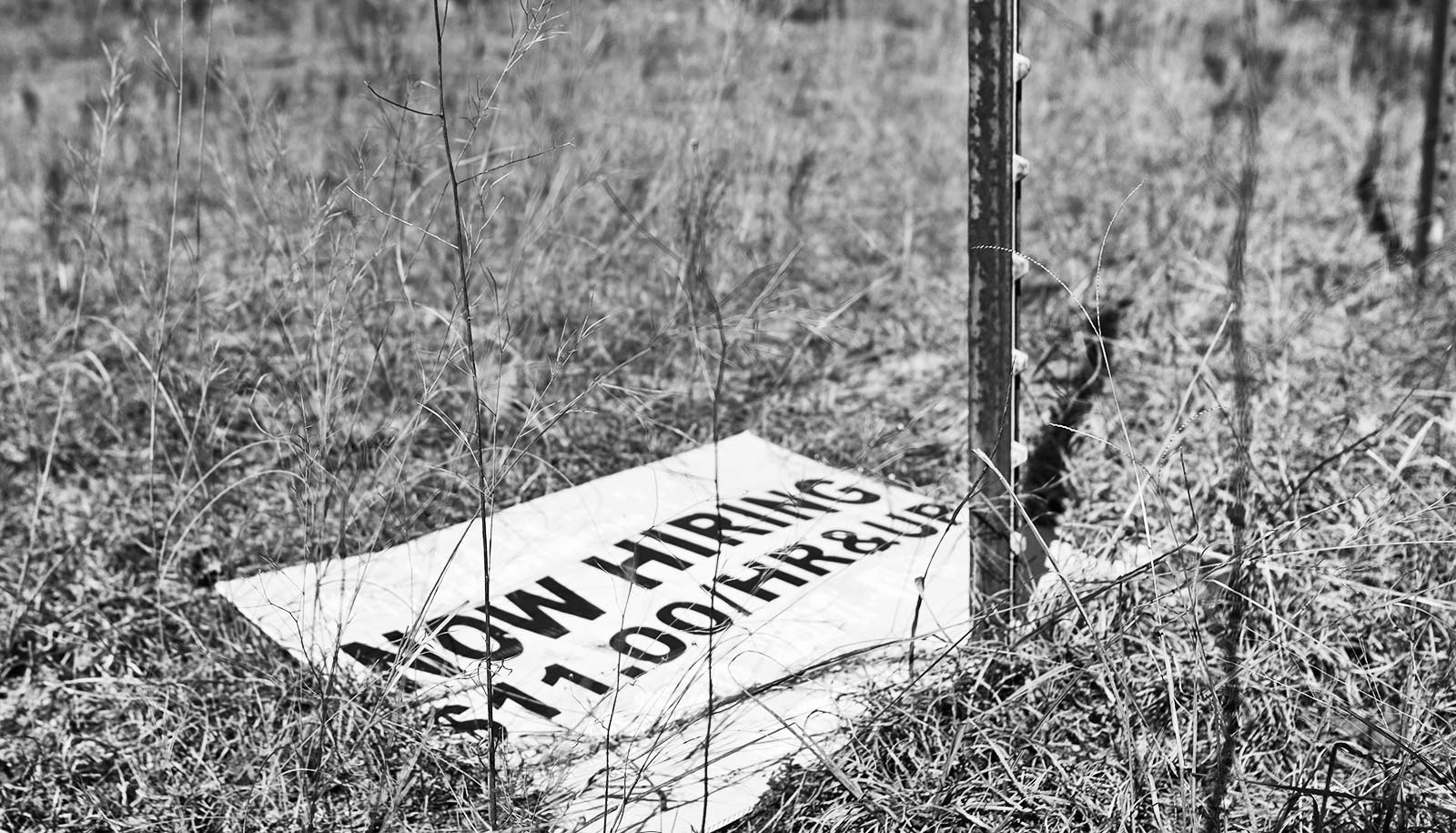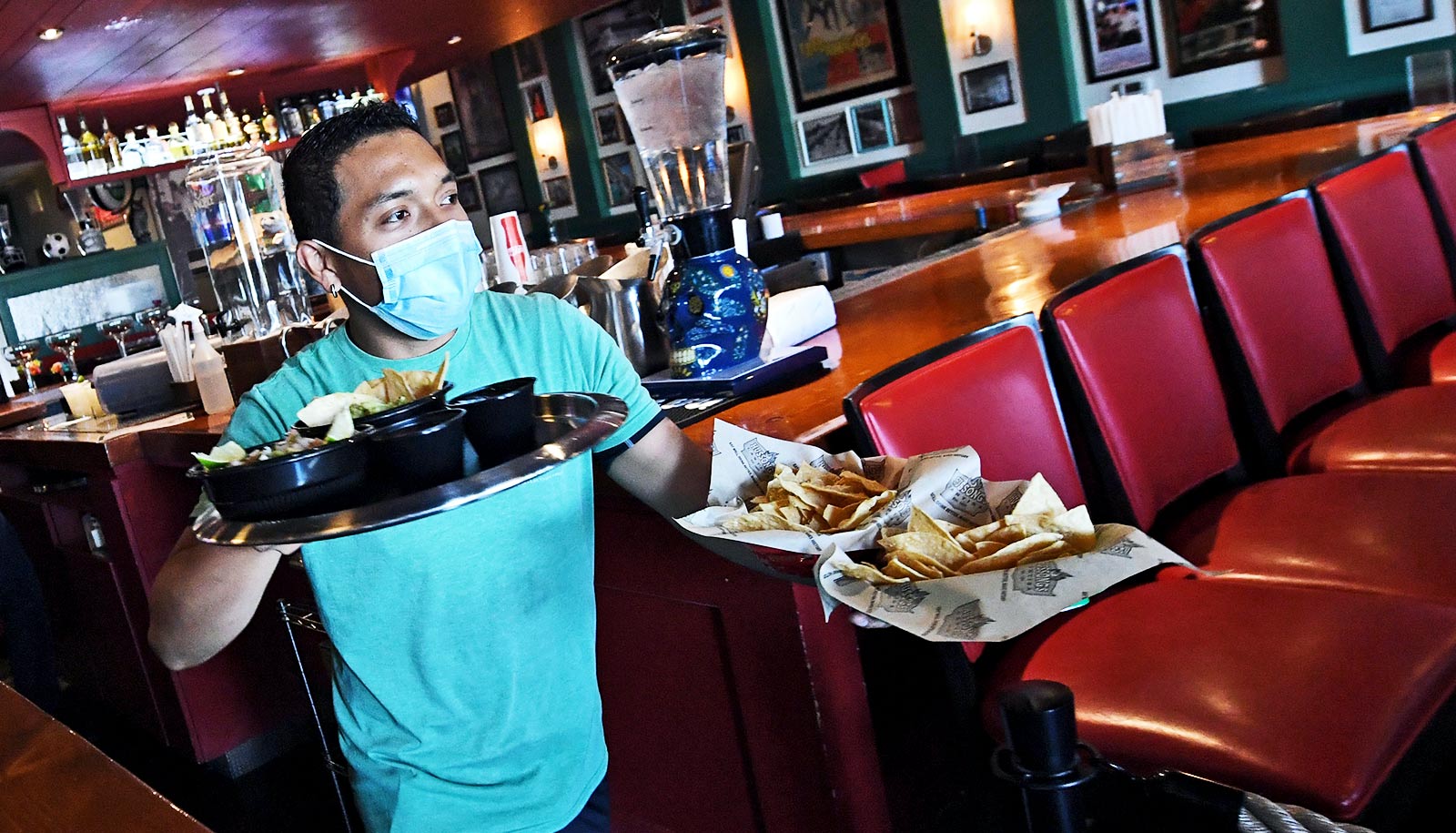
"Given the political dialogue and my assessment of national public health policy, I really worry about what the economy will look like in the fall," says Narayana Kocherlakota. In the image, a woman has her temperature checked before entering the Apple Store on Fifth Avenue as the city moves into phase two re-opening from the coronavirus pandemic on June 21, 2020 in New York City. (Credit: Cindy Ord/Getty Images )
Expert: Economic recovery depends on fighting COVID-19
An economist has a simple message about economic recovery from the COVID-19 pandemic: "The better we do on public health, the better the economy will do."
Prospects for economic recovery in the United States depend on how effectively the country can combat COVID-19, economist Narayana Kocherlakota argues.
With unemployment between 13 and 14% and the stock market swinging up and down in part based on optimism that the worst of the pandemic is behind us, Kocherlakota’s message is simple.
“If people are worried about the disease, they’re less likely to get a haircut or go to a restaurant. So the disease operates as a drag on the economy,” says Kocherlakota, professor of economics at the University of Rochester and a former president of the Federal Reserve Bank of Minneapolis.
“The better we do on public health, the better the economy will do.”
Here, Kocherlakota, offers his view on economic recovery from the COVID-19 pandemic:
The post Expert: Economic recovery depends on fighting COVID-19 appeared first on Futurity .
What’s the best-case scenario for recovery?
The best-case scenario is one where, for whatever reason, the virus ceases to be a major factor in our lives by the second half of the year. That can happen in a number of different ways.
The virus can mutate, researchers can come up with a treatment that can be delivered quickly, or—because of our public health interventions through testing , tracing, and quarantining (TTQ)—we’re able to get on top of COVID-19 to the extent that people feel confident that there aren’t that many cases any more.
If any of that happened, then we can expect a very fast recovery in the second half of the year.
In lieu of an effective national TTQ program, what would you expect in terms of an economic recovery?
The Federal Reserve expects that unemployment will drop to a little below 10% by the end of this year, and not reach the 5% range until the end of 2022. Growth would be slow, while unemployment remains high.
That’s what I would call the modal—or most likely—outlook, given that we have a patchwork of approaches around the country—and around the world—to COVID-19.
Is there a third outlook?
The worst case is much worse.
In the state of New York, we’ve seen a tremendous decline in cases, which comes from serious restrictions on people’s behavior and actions. We’re hoping that the TTQ program will be sufficiently robust so that we won’t have to go back to those restrictions.
In the worst-case scenario, governments are unable to get on top of the disease, resulting in wave after wave of new cases. Then we’d be stuck at near 10% unemployment for a very long time.
How important are stimulus plans if the recession lingers?
If the virus remains a threat, then stimulus will be critical. If people are not working, we need the government to provide money for them to continue making purchases. Without those stimulus payments, demand will falter and unemployment will stay high.
Right now, the political dialogue is moving against more fiscal interventions . We had robust interventions by the federal government in March and April, most of which were designed to expire over the course of the summer.
Given the political dialogue and my assessment of national public health policy, I really worry about what the economy will look like in the fall.
Share this article:
This article uses material from the Futurity article, and is licenced under a CC BY-SA 4.0 International License. Images, videos and audio are available under their respective licenses.


